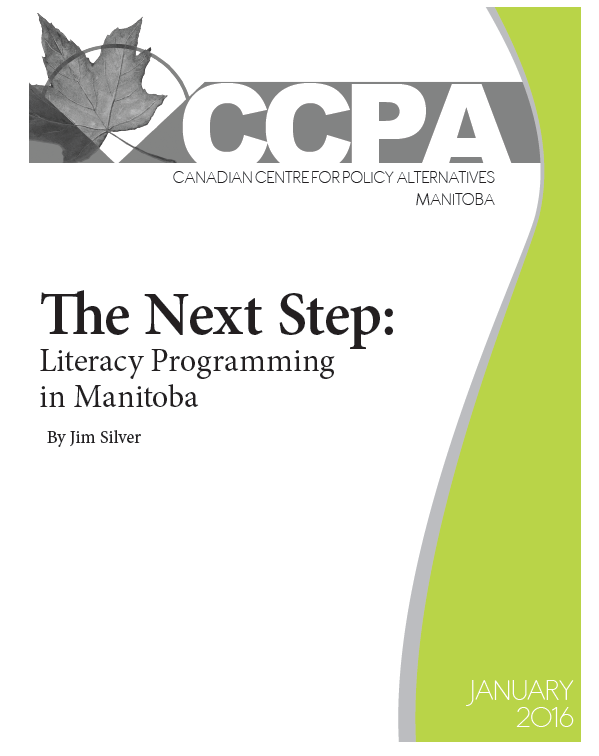 By Paul Moist
By Paul Moist
Pensions and the retirement security concerns of Canadians have been in the news in a big way in recent years.
With two-thirds of Canadian workers not covered by a workplace pension plan and a majority of citizens not contributing to RRSPs (almost $1 trillion in unused contribution room) many look to governments to show leadership on this looming pan-Canadian public policy issue. In both the Canadian Pension Plan (CPP) and Old Age Security (OAS) debates, Manitoba’s voice has been both clear and strong in favour of the interests and well-being of workers and their families.

By Lynne Fernandez
The results of the recent federal election are a likely indication of what Manitobans want to see from our next government: transparency; stimulus spending on ailing infrastructure, financed by deficits; a transition to a green economy; and respect and support for Canada’s public service workers.

By Pete Hudson
Manitoba’s Home Care program was launched in 1974 under the guidance of the late Evelyn Shapiro. It is publicly funded and publicly delivered. It aims to avoid or delay the more expensive forms of chronic care such as personal care homes, and improve satisfaction and health outcomes for the client. The largest cluster of program components consists of concrete assistance such as laundry, shopping, bathing, but nursing and other health professional services may also be provided. It is universal having no fee for the client regardless of income, but it is not infinitely elastic; rather the type and level of service is based on assessed need.
 By Lynne Fernandez
By Lynne Fernandez
By 2013 the Conservative government had cut overall federal taxes and other revenues to the lowest rate seen in more than 70 years. Between 2011 and March 2015, 25,000 to 30,000 federal public sector positions were eliminated. Between 2010 and 2015, 4,766 civil service jobs were lost in the prairie region (1,875 in Manitoba; 799 in Saskatchewan; 2,092 in Alberta).
Valuable services such as those provided by the Canadian Food Inspection Agency, Veterans Affairs, Employment and Social Development Agency, front line Canada Revenue staff and National Parks conservation and maintenance programs were and will be diminished by these cuts if they are not halted. A new report from the Errol Black Chair in Labour Issues examines how the prairie region is being affected by these cuts and recommends how funding and programs be restored.
By the Green Action Centre
Most major Canadian cities have organic waste pick up, including: Vancouver, Edmonton, Saskatoon, Hamilton and Toronto. Calgary will start in 2017. If Winnipeg does not move soon on this issue, we will be one of the few large cities in the country not doing our part. At issue is an upcoming motion from Councillors Eadie and Wyatt to postpone the City’s plans for organic waste pickup.
By Matthew Stock
The Housing First model is an increasingly popular approach to housing homeless Canadians. Many studies have examined the benefits of Housing First, arguing that it is more effective than traditional methods of addressing homelessness.
Far less attention has been paid to the challenges involved in operating Housing First programs, particularly in the Canadian context. The new report Ending Homelessness? A Critical Examination of Housing First in Canada and Winnipeg by Matthew Stock attempts to fill this research gap.
By Scott Price
Ride-sharing service Uber wants into the Winnipeg taxi market. Looking past the marketing facade, Uber isn’t innovative or inevitable. Uber is in fact de-regulation of the taxi industry, modernized using smart phone applications and an aggressive expansion campaign.
By Molly McCracken
The rise in food costs disproportionately affects the poor as food makes up a larger portion of their spending. Increased income, educational programs and northern food subsidies need to work hand in hand if the food security crisis in Manitoba is to be overcome.
 Canadian Centre for Policy Alternatives – Manitoba new publication release:
Canadian Centre for Policy Alternatives – Manitoba new publication release:
Low levels of adult literacy in Manitoba are a barrier to full participation in our society. Easily accessible supports, located in low-income communities are needed to address this challenge, a new study finds.
In 2013 one in six Manitobans had literacy levels so low that they could not participate fully in life. Literacy costs our society. Low literacy rates impact people’s ability to access health care. People with low literacy are more likely to be on social assistance or incarcerated. Women with low literacy who are primary care givers of children, struggle to read to their children, making it difficult to break intergenerational cycle of poverty. Aboriginal people are more likely to leave school before grade twelve and require literacy supports as adults. Refugees may arrive from countries where basic education was not possible, requiring access to literacy programming.
The Next Step: Literacy Programming in Manitoba, by Jim Silver finds that the national policy framework established to support adult literacy was dismantled in the mid 2000s, cutting core funding to national literacy organizations and redirecting money to training and job readiness. But if people do not have basic literacy skills, they cannot participate in job training programs. Literacy for family, social or political participation is no longer the focus.



Follow us!